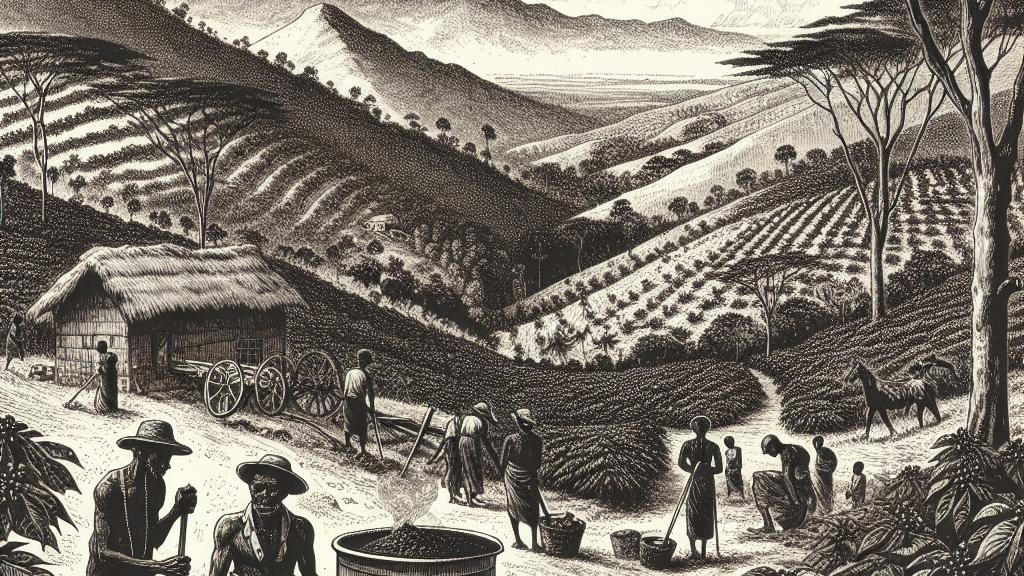Understanding the Decline of Kenya's Famous Coffee
Overview
- Kenyan coffee, once celebrated as the pinnacle of quality, is now struggling due to systemic issues.
- Challenges like the outdated auction system and a troubling shift in coffee varietals are taking a toll.
- Comprehensive reforms are needed to revive the rich heritage and exceptional quality of Kenyan coffee.

A Historical Overview of Kenyan Coffee
Imagine the year 1893 when Scottish missionary John Paterson introduced coffee to Kenyan soil. This was not just the birth of a crop; it signaled the dawn of a vibrant coffee culture. Over decades, as sprawling plantations emerged, coffee became a critical cash crop that captured the hearts of many. However, this prosperity was marred by colonial exploitation. Farmers who toiled day in and day out were often sidelined, left with little to show for their hard work while colonial settlers amassed wealth. This deep-rooted inequity laid the groundwork for the challenges that still plague the coffee industry today.
The Auction System: A Barrier to Fair Trade
Central to the current crisis is the archaic auction system that governs coffee sales in Kenya. Picture this: after a grueling harvest, farmers are forced to wait up to six unjust months for payment. This delay wreaks havoc on their finances, compelling many to rely on crippling high-interest loans just to survive. On the other hand, intermediaries cash in, reaping enormous profits while producers struggle to make ends meet. This disconnect raises an urgent question: why would dedicated farmers continue cultivating coffee when their passion does not yield adequate rewards?
Varietal Changes: Trading Quality for Quantity
Let's dive into the conversation about coffee varietals, which is not just technical jargon, but a matter of identity for Kenyan coffee. Over the years, beloved strains like SL-28 and SL-34—known for their exquisite flavors—have been replaced by hybrids such as Ruiru 11 and Batian. While these newer plants may offer disease resistance, they often deliver a less vibrant cup. For example, the essential secondary fermentation process, which gives Kenyan coffee its iconic fruity notes, is frequently skipped in an attempt to lower costs. The result? A notable decline in flavor quality, with consumers no longer experiencing the unique zest that once characterized this renowned brew.
Reforms: A Silver Lining
To change the course of Kenya's coffee narrative, decisive reforms are not just an option—they are a necessity. Establishing direct payment systems would empower farmers, allowing them to access their earnings immediately and reinvest in their farms without financial tiers hampering their growth. Additionally, the proposed coffee bill aims to dismantle corrupt practices and enhance farmer earnings. By elevating smallholder cooperatives, we can ensure that profits flow back into the hands of those who cultivate the coffee. Visualize a future where farmers flourish, and their exceptional coffee products regain deserved recognition on the global stage.
A Bright Future Awaits Kenyan Coffee
In the face of decline, hope ignites for the future of Kenyan coffee. Through committed reforms and unwavering support for farmers, we stand at the brink of revitalizing this cherished industry. Just think about it—a thriving coffee trade where producers are rightfully celebrated, and customers savor the unforgettable flavors of Kenyan coffee once more. This journey toward renewal is not unlike brewing an exceptional cup—it requires careful attention and an appreciation for the unique qualities that make it special. Together, by creating a transparent system that rewards hard work, we can herald a new era for Kenyan coffee, ensuring it remains a bastion of quality and resilience for generations to come.

Loading...